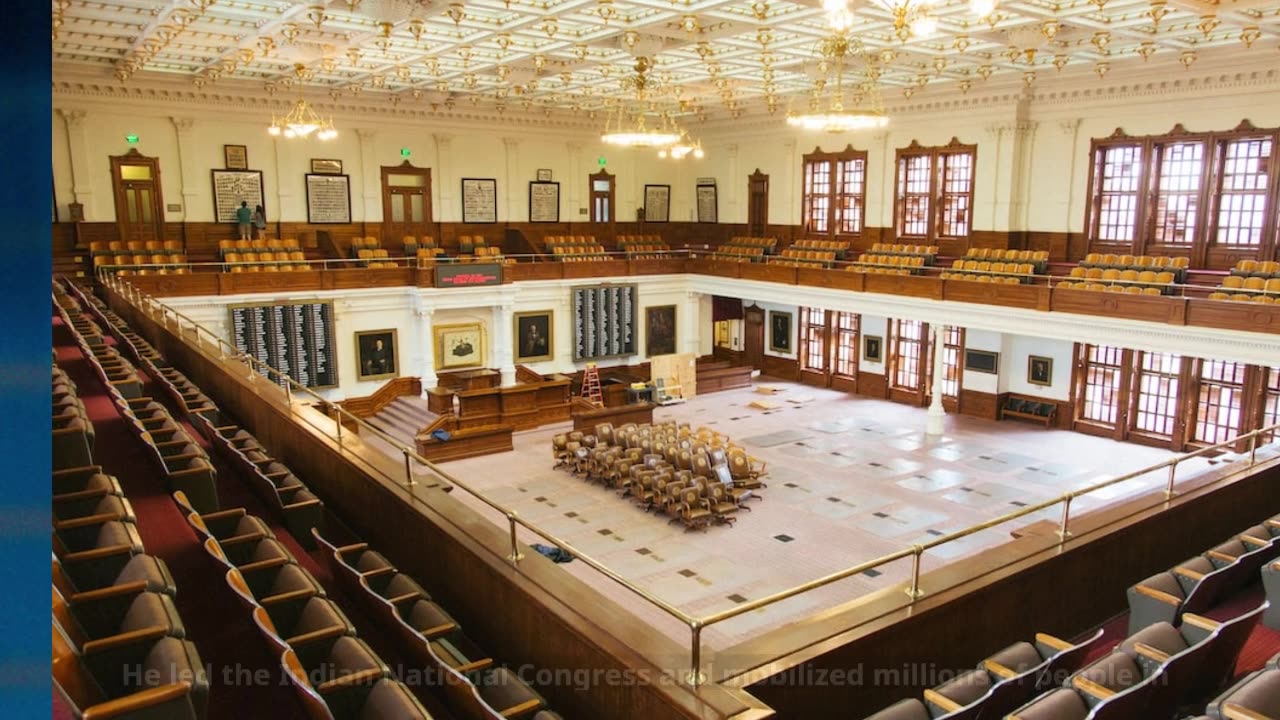Premium Only Content

Mahatma Gandhi: A Journey Towards Freedom, Peace, and Nonviolence
Mahatma Gandhi, also known as Mohandas Karamchand Gandhi, was a visionary leader, political activist, and spiritual guide who played a pivotal role in India's struggle for independence from British colonial rule. He is widely regarded as one of the most influential figures of the 20th century, leaving an indelible mark on the world through his philosophy of nonviolence, his unwavering commitment to truth, and his unwavering faith in the power of peace.
Born on October 2, 1869, in Porbandar, a small town in Gujarat, India, Gandhi grew up in a middle-class family deeply rooted in Hindu traditions. From an early age, he displayed an innate sense of justice and a profound empathy for the downtrodden. Inspired by the teachings of great philosophers like Henry David Thoreau and Leo Tolstoy, Gandhi developed a unique philosophy of nonviolence, which he termed "Satyagraha" or the "truth force."
Gandhi's political awakening came during his stay in South Africa, where he experienced firsthand the brutalities of racial discrimination. Determined to fight against injustice, he championed the rights of Indians and led numerous campaigns for civil rights, equality, and social justice. It was during this time that he perfected the techniques of nonviolent resistance, employing methods such as civil disobedience, strikes, and boycotts to challenge oppressive systems.
Returning to India in 1915, Gandhi became the voice of the nation's oppressed masses. He led the Indian National Congress and mobilized millions of people in their quest for freedom. Gandhi firmly believed that political change must be accompanied by a transformation of society's values and attitudes. He advocated for self-reliance, the upliftment of the marginalized, and the eradication of social evils such as untouchability and gender inequality.
Gandhi's nonviolent approach to resistance was not merely a political strategy; it was a way of life. He emphasized the power of love, compassion, and forgiveness as essential tools for resolving conflicts and building a harmonious society. He famously said, "An eye for an eye only ends up making the whole world blind." His philosophy touched the hearts of people across the globe, inspiring movements for civil rights, freedom, and justice in various countries.
The Salt March of 1930 stands as a testament to Gandhi's unwavering commitment to nonviolence. In protest against the British monopoly on salt production, he embarked on a 240-mile journey with his followers, defying the Salt Laws. This act of peaceful civil disobedience galvanized the nation and brought international attention to India's struggle for independence.
Throughout his life, Gandhi practiced what he preached, living a simple and austere lifestyle. He promoted the use of local and hand-spun cloth, leading to the revival of the Khadi movement, which aimed to promote self-sufficiency and economic independence. Gandhi's humility, integrity, and selflessness earned him the title of "Mahatma," meaning "great soul."
Tragically, Gandhi's life was cut short when he was assassinated on January 30, 1948, by a Hindu extremist who disagreed with his tolerant stance towards other religions. However, his legacy continued to thrive, inspiring generations to come. His teachings on nonviolence, communal harmony, and social justice remain relevant even in the present day.
Mahatma Gandhi's influence extends far beyond the borders of India. He stands as a symbol of hope, resilience, and the transformative power of peaceful resistance. His life and teachings serve as a guiding light, reminding us that positive change can be achieved through love, understanding, and unwavering dedication to truth and justice.
-
 23:55
23:55
CartierFamily
2 days agoElon & Vivek TRIGGER Congress as DOGE SHUTS DOWN Government
6.29K17 -
 5:43:44
5:43:44
Scammer Payback
2 days agoCalling Scammers Live
99.9K17 -
 18:38
18:38
VSiNLive
1 day agoProfessional Gambler Steve Fezzik LOVES this UNDERVALUED Point Spread!
79K10 -
 LIVE
LIVE
Right Side Broadcasting Network
10 days agoLIVE REPLAY: President Donald J. Trump Keynotes TPUSA’s AmFest 2024 Conference - 12/22/24
8,587 watching -
 4:31
4:31
CoachTY
18 hours ago $14.69 earnedCOINBASE AND DESCI !!!!
65.5K8 -
 10:02
10:02
MichaelBisping
17 hours agoBISPING: "Was FURY ROBBED?!" | Oleksandr Usyk vs Tyson Fury 2 INSTANT REACTION
27.8K8 -
 8:08
8:08
Guns & Gadgets 2nd Amendment News
2 days ago16 States Join Forces To Sue Firearm Manufacturers Out of Business - 1st Target = GLOCK
72.3K64 -
 10:17
10:17
Dermatologist Dr. Dustin Portela
2 days ago $16.41 earnedOlay Cleansing Melts: Dermatologist's Honest Review
116K6 -
 1:02:20
1:02:20
Trumpet Daily
2 days ago $36.49 earnedObama’s Fake World Comes Crashing Down - Trumpet Daily | Dec. 20, 2024
74.9K51 -
 6:29
6:29
BIG NEM
1 day agoCultivating God Mode: Ancient Taoist NoFap Practices
56K9